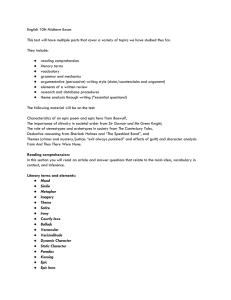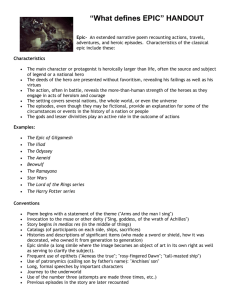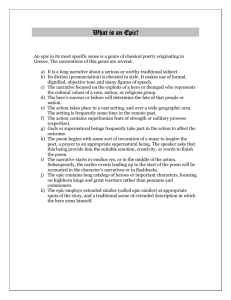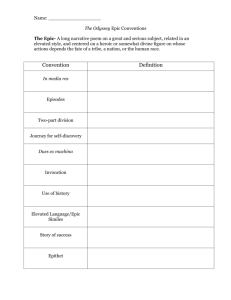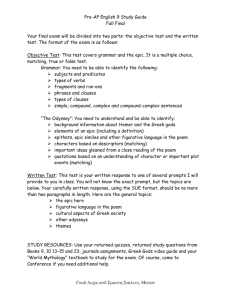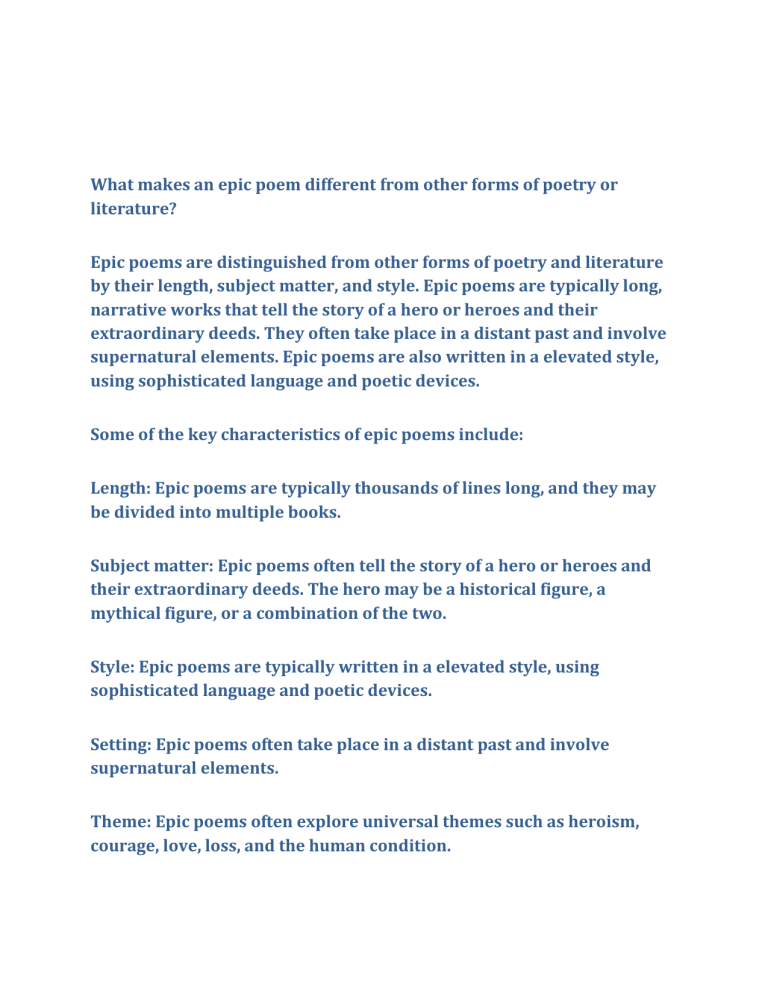
What makes an epic poem different from other forms of poetry or literature? Epic poems are distinguished from other forms of poetry and literature by their length, subject matter, and style. Epic poems are typically long, narrative works that tell the story of a hero or heroes and their extraordinary deeds. They often take place in a distant past and involve supernatural elements. Epic poems are also written in a elevated style, using sophisticated language and poetic devices. Some of the key characteristics of epic poems include: Length: Epic poems are typically thousands of lines long, and they may be divided into multiple books. Subject matter: Epic poems often tell the story of a hero or heroes and their extraordinary deeds. The hero may be a historical figure, a mythical figure, or a combination of the two. Style: Epic poems are typically written in a elevated style, using sophisticated language and poetic devices. Setting: Epic poems often take place in a distant past and involve supernatural elements. Theme: Epic poems often explore universal themes such as heroism, courage, love, loss, and the human condition. What role does mythology play in shaping the events and characters in the epic poem? Mythology plays a significant role in shaping the events and characters in many epic poems. Myths are stories that are often passed down orally from generation to generation. They often involve supernatural beings and events, and they can serve a variety of purposes, such as explaining natural phenomena, teaching moral lessons, or providing a sense of identity for a culture. In epic poems, mythology can be used to create a sense of awe and wonder, to explain the motivations of the characters, and to provide a context for the events of the story. For example, in the Greek epic poem The Iliad, the gods and goddesses play an active role in the Trojan War. They intervene in the battle on both sides, and they help to determine the outcome of the war. How does the epic poem reflect the cultural values and beliefs of the society it originated from? Epic poems can reflect the cultural values and beliefs of the society they originated from in a number of ways. For example, the hero of an epic poem may embody the ideals of that culture. The poem may also explore themes that are important to that culture, such as the nature of good and evil, the importance of family and community, and the relationship between humans and the gods. For example, the Hindu epic poem The Ramayana reflects the cultural values and beliefs of ancient India. The hero of the poem, Rama, is an ideal Hindu prince. He is brave, virtuous, and devoted to his family and his people. The poem also explores themes such as the importance of dharma (duty) and the power of good to overcome evil. Epic poems can be a valuable source of information about the cultures that created them. By studying epic poems, we can learn about the values, beliefs, and traditions of those cultures. References: Epic Poetry: Characteristics, Elements, and Examples Poetry 101: What Is an Epic Poem? Learn About the History and Characteristics of Epics with Examples Epic Poetry Definition, Form and Examples - Poem Analysis Epic poetry - Wikipedia Epic Poetry: Origin and History, Characteristics, Relation to Myths and Outstanding Works
